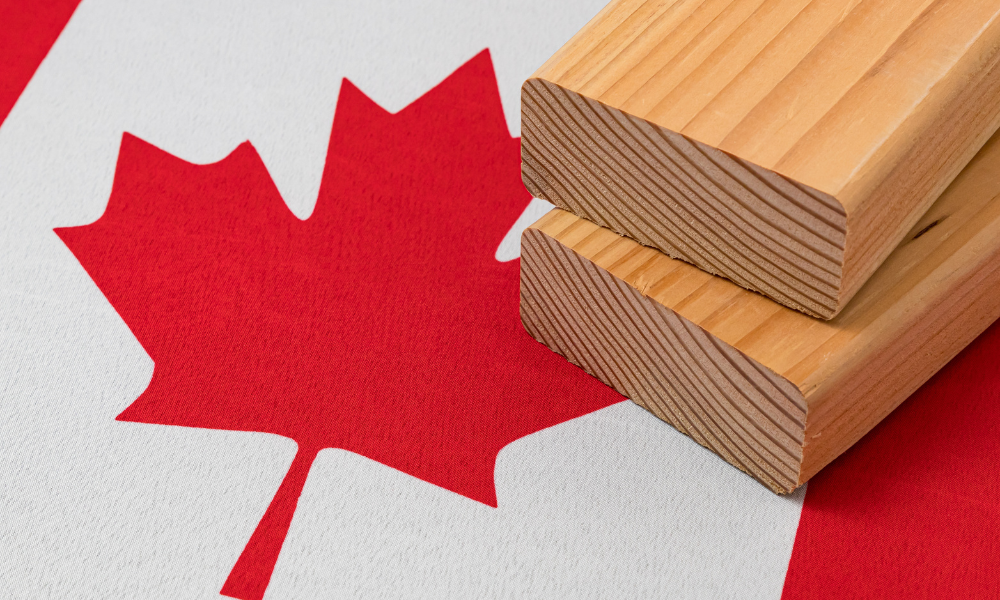Tariff surge sparks renewed tensions over wood imports

The United States is preparing to impose higher duties on Canadian softwood lumber imports, escalating a longstanding trade dispute.
According to a US Department of Commerce memorandum, duties on Canadian softwood lumber will rise to a combined 34.45%, up from the current 14.4%. The increase comes ahead of any additional tariffs that President Donald Trump has threatened as part of a broader reevaluation of trade policy during his second term.
The existing duties stem from US claims that Canadian lumber producers benefit from unfair government subsidies. The US alleges that because many Canadian forests are publicly owned, provinces are able to offer timber at below-market prices—a practice known as “stumpage.” Canadian officials deny this, according to Bloomberg.
“Our stumpage system is grounded in market principles, with timber sold through open, competitive auctions,” Kurt Niquidet, president of the British Columbia Lumber Trade Council, said in an email.
Impact on housing and traders
Bloomberg reported that the new duty structure would increase anti-dumping rates from 7.66% to 20.07% and countervailing duties from 6.74% to 14.38%. The result is a total duty burden of 34.45% on Canadian softwood lumber entering the US market.
The announcement comes as part of Trump’s broader tariff strategy. In addition to lumber, his administration has imposed 25% tariffs on steel, aluminum, and automobiles, and has warned of further penalties for goods not compliant with the US-Mexico-Canada Agreement.
The timing has raised alarms among US homebuilders, who say higher lumber prices could worsen the affordability crisis in American housing. Industry representatives warn that additional tariffs will increase construction costs, particularly as the market continues to face labor shortages and elevated material prices.
In Canada, the move has drawn swift political and industry criticism. British Columbia premier David Eby called the duties “an attack on forest workers and British Columbians,” and said they would only raise costs “for Americans who voted for a president who promised to lower costs.”
Lumber is a cornerstone industry for several Canadian provinces, especially British Columbia and Quebec. Already contending with rising production costs, wildfires, and the devastating spread of the mountain pine beetle, industry leaders say the new tariffs could push many operations to the brink.
“At today’s prices, it’s an unequivocal dead end,” said Frederic Verreault, vice president of corporate affairs at Les Chantiers de Chibougamau Ltée, a major Quebec-based lumber processor. “A two-by-four piece will sell for about C$3 today, but the same piece was selling for more than C$10 in 2022, even though our production costs have risen.”
The US Lumber Coalition, which advocates for domestic producers, defended the higher tariffs. “These unfair trade practices are designed by Canada to maintain an artificially inflated US market share for Canadian products and force US companies to curtail production, thereby killing US jobs,” said coalition chairman Andrew Miller.
Have you seen signs of slowdown in your industry? Share your experience with us.



